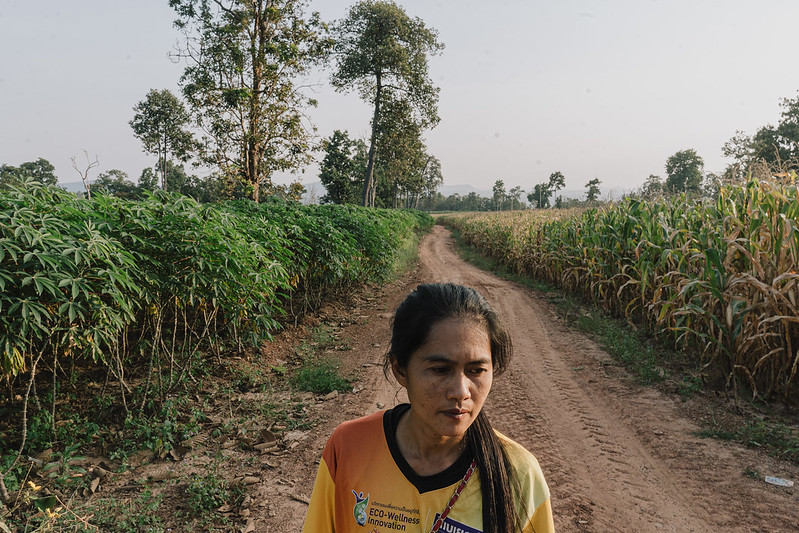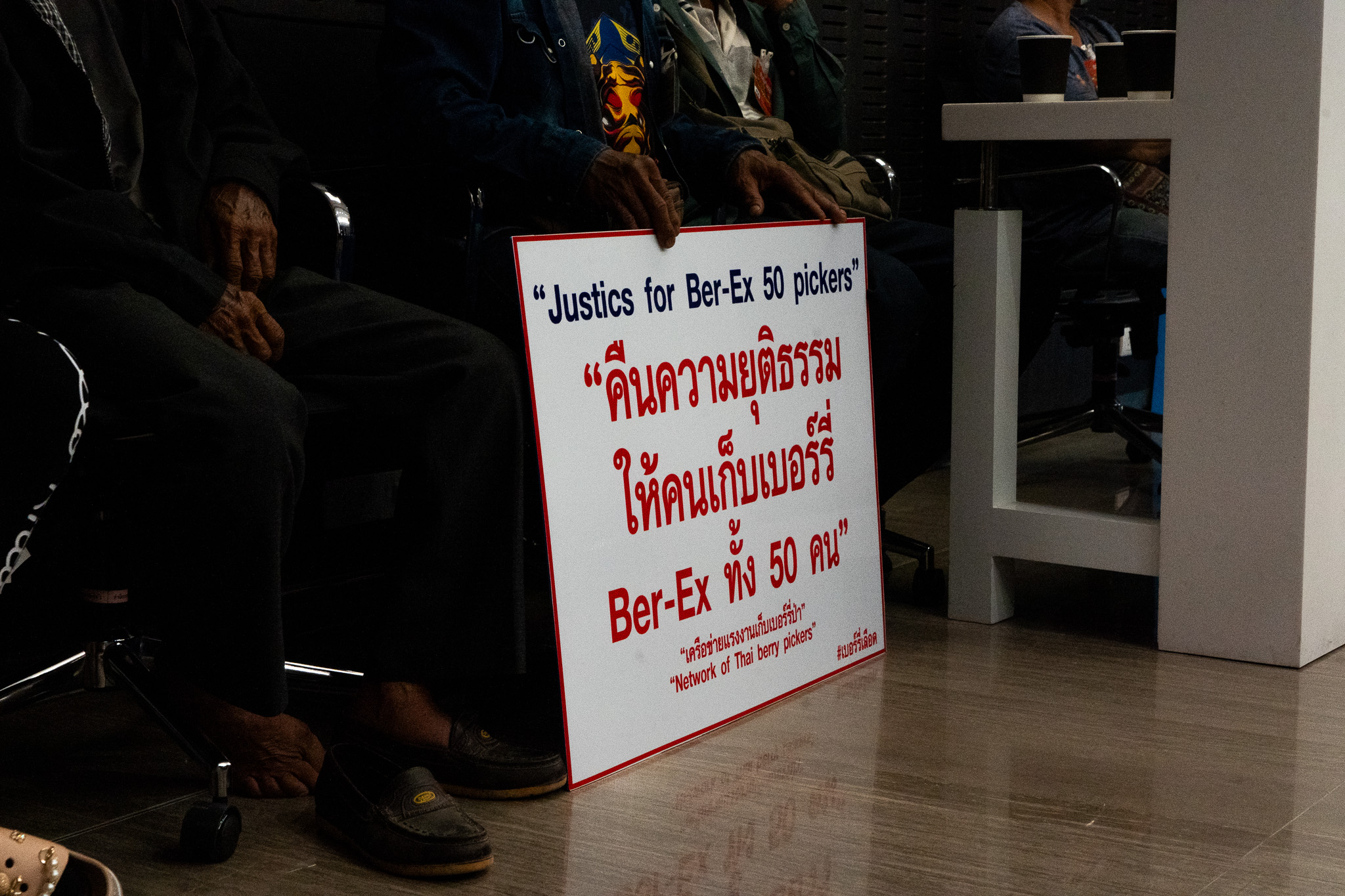Guest contribution by Michelle Baik
Grandmothers, activists, and businesswomen – the Radical Grandma Collective is slowly but surely changing one village in the mountains of Northeast Thailand.
The 22 women of Na Nong Bong Village in Loei Province who make up the Radical Grandma Collective, also known as RadGram, weave and sell scarves for an international market alongside their partners based in the United States. The women use their profits not only as extra income to support their families but also to support their activism.
A portion of their profits goes towards People Who Love Their Hometown (PWLTH), an anti-mining group based in the village. It was formed in 2006 after a copper-gold mine owned by Tungkum Limited began operations less than a kilometer away.
Since the beginning of mining operations, villagers say they have felt the harmful impact of toxins trailing from the nearby mine. The effects, they claim, include skin rashes, chemicals in their bloodstream, and lower crop yields.
In November 2012, the walls of the mine’s tailings pond collapsed three times. The pond contained high levels of chemicals used to separate gold from ore, such as arsenic, which is poisonous and can lead to severe long-term health effects.
In 2014, 300 masked and armed men allegedly beat forty members of PWLTH.
Over the course of its 12-year-old struggle with Tungkum Limited, Na Nong Bong Village has found little progress in legislation.
In 2016, the military government issued Order 72/2559, which suspended gold mine operations. But despite the order, villagers say they have heard activity at the site at night.
In August, a new mining law was enacted, which some say was intended to decentralize administrative power and protect those living near mines.
But others have criticized the law as a “one-stop service,” handing most responsibilities, from finding mining land to obtaining permits, to the government and requesting nothing but a check from mining companies. Opponents also argue that locals will be further stripped of their right to voice their concerns.
In recent years, the courtroom has become the main battleground. Since 2013, Tungkum Limited sued individual villagers more than a dozen times, with accusations including defamation and trespassing on company land. Many of the company’s charges were dropped, but villagers say hearings require multiple appearances in courtrooms far from their hometown.

The radical grandmas use their profits to relieve community members of the costs of traveling to and from these hearings.
According to Surapan Rujichaiwat, one of the leaders of PWLTH, fighting in court will remain a key strategy for the activist group. But the future plan is to fight back — this time on the side of the plaintiff.
In order to resist the mine through legal channels, Mr. Surapan says, villagers need to first know the law. He hopes that his own young daughter will grow to study law and return to support her village.
To continue supporting the movement in the way they know best, the activist-weavers of Na Nong Bong say they are currently seeking to expand their market, becoming self-reliant, and adding businesswomen to their already-long list of roles.




